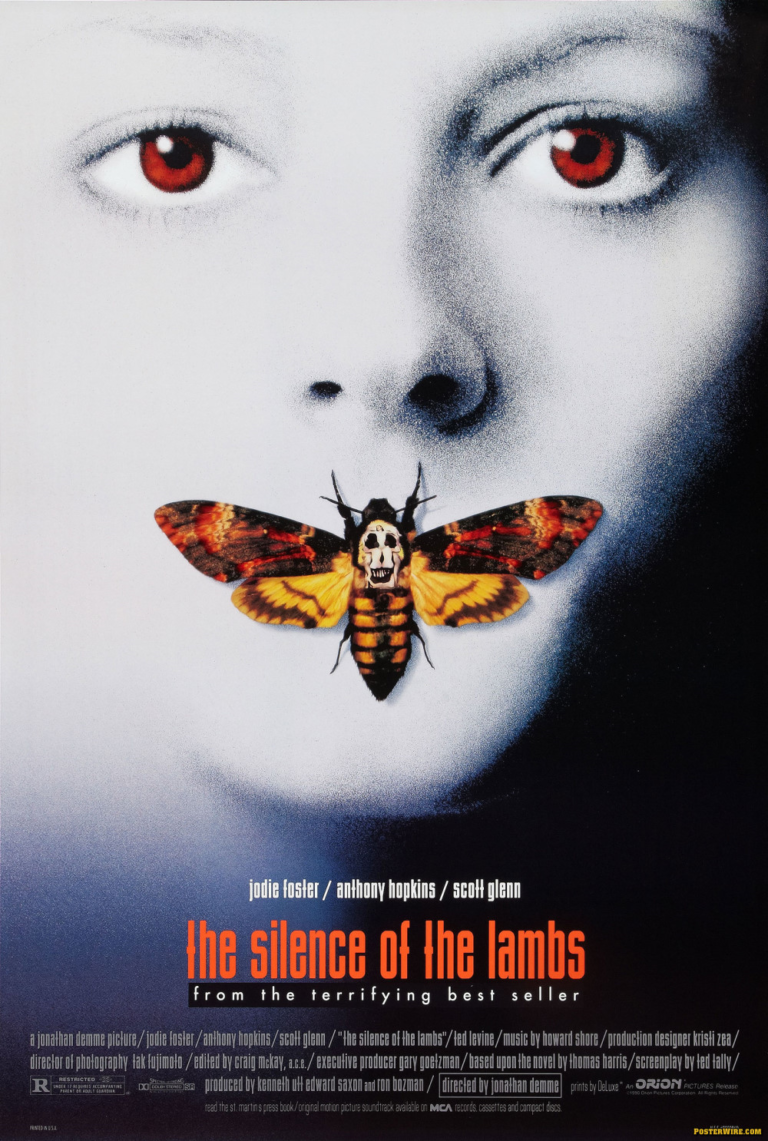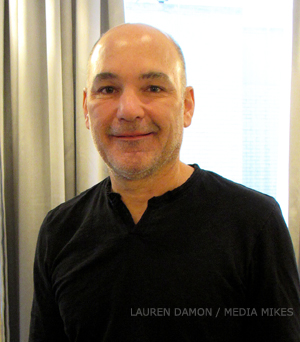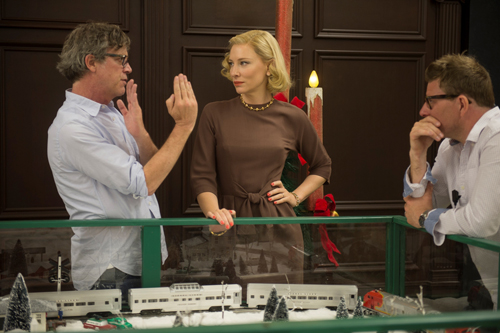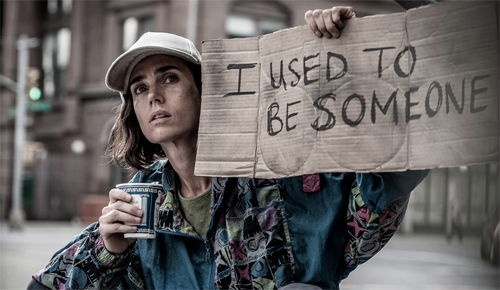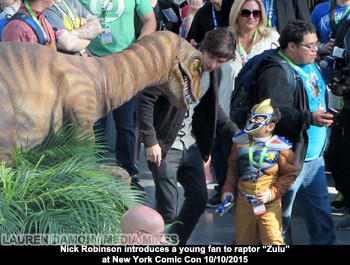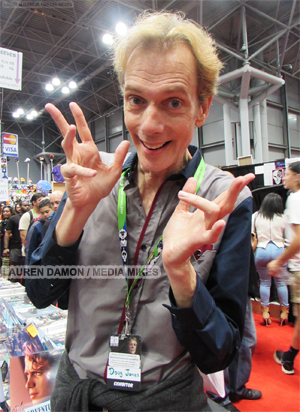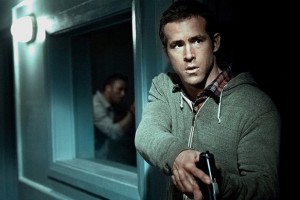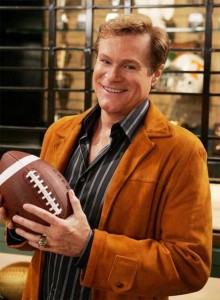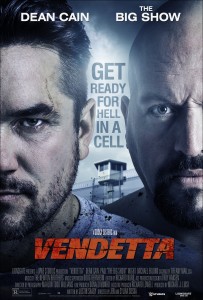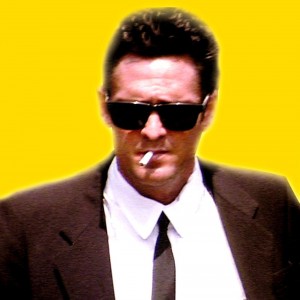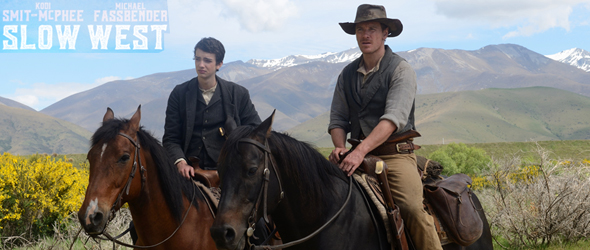If you’ve made the right decision this Valentine’s Day weekend and have checked out Deadpool then you may not have heard Greg LaSalle but you definitely saw him. Sort of. LaSalle is one of the tech wizards behind the Academy Award winning MOVA Facial Performance Capture system used in bringing Deadpool’s X-men reinforcement, Colossus, to the screen. While Colossus’s body and voice were provided by actor Stefan Kapicic, LaSalle stepped in front of the MOVA cameras to give the metallic facial performance.
The morning after Deadpool made its New York debut amidst a Deadpool fan costume contest, I sat down with LaSalle for a conversation on Deadpool, other Marvel films and this amazing process used to bring characters such as the Incredible Hulk and Thanos to life.
Lauren Damon: Did you go to the fan premiere last night?
Greg LaSalle: Oh yeah, that was a lot of fun.
How many Deadpools showed up?
LaSalle: Oh you mean the people who dressed up? Oh I don’t know, I think there were quite a bit. I think they chose like seven of them or something, it was pretty funny. One in a tutu, I mean…it was hysterical.
Are you someone who goes to conventions in general seeing that?
LaSalle: No–
“Avoid them like the plague!”
LaSalle: [laughing] No, it’s not that, you know it’s just I have so many things to do. I don’t get a chance to do that very often.
Can you talk about what MOVA Facial Performance Capture is?
LaSalle: I’ll start by telling you first a little bit about what motion capture actually is–which is where you would wear the reflective markers. And that system, those systems were actually developed to deduce where a skeleton is moving. So as those cameras became higher resolution, people started shrinking the dots and gluing them to people’s faces. The data set you get from that is only like 200, 250 points. So a friend of mine in the bay area decided that he would fund the development of research to find out how to actually capture the entire surface of the skin deformity and that’s where MOVA comes from. That development.
So it’s super high resolution, it captures about 7000 data points, all the wrinkles, all the subtlety of the performance is captured. So it’s basically like capturing a scan per frame of the film of the actor. And then about two years ago Digital Domain developed a technique to take those and apply them mathematically to a computer generated character. So the entire performance gets carried over so it really looks, you know, all the performance is captured.
I heard that it’s captured through paint instead of dots?
LaSalle: We apply, it’s invisible makeup in white light that just is applied as a random pattern and then the system has strobing black lights and white lights. So certain cameras take a picture when the black lights are on and all they see is this random pattern makeup. And that’s what’s used to create the scans and track the points across the face.
Seeing as you worked on both Avengers and Age of Ultron and a couple years had passed between them, did the process for capturing the Hulk change? If you worked on the Hulk?
LaSalle: I did, in the first Avengers that’s what it started out as actually, it was before filming was working with Industrial Light and Magic to capture Mark [Ruffalo] to see how he would move as the Hulk. On set they used a bit of different technology so this new technology that we used for Colossus is actually the first time it’s been used. This mathematic transferring of the performance. Things like in the past, like in Avengers, we surveyed the actor. We’d get all the information about how the actor’s face would move and then companies would build a rig which is just a way of animating and when you run a slider, the lip goes up and it goes up as if it was the actor. But it doesn’t have all the subtlety and nuance of the variation in a performance. The new technology the does.
Did you have any hand in that Hulk-smashing-Loki scene?
LaSalle: Well we only specialize in the facial stuff, so only the expressions part of–but that was my favorite part of the first Avengers movie. That ‘boom boom boom!’ [LaSalle does some pretty accurate Hulk smashing motions] It’s a shame though to see Tom Hiddleston beat up like that because he’s such a nice guy.
You captured his face for that? Wasn’t it just grunting?
LaSalle: Yeah yeah…It’s so many years ago now and we’ve done so many things that I can’t remember exactly what we did. If I remember correctly, they put a pipe with some foam on the end and they kept [jabbing motions, laughing] like they’re pushing the back of [Tom’s] head so that he’d [jerks his head]…It was very strange!
What did you work on for Age of Ultron?
LaSalle: Actually I only did the–Thanos. Working with Josh Brolin.
Also on Guardians of the Galaxy too?
LaSalle: Mhmm.
I don’t know if Marvel would let me ask you but when is he coming back?!
LaSalle: That’s really funny because I was convinced while we were filming Age of Ultron that they’re gonna–I just have this feeling that something will happen. I mean he’s like the baddest dude in the whole universe and they have to do something–
Yeah coming up of course we have [Captain America] Civil War, that’s Earth-bound but [Thor] Ragnarok is coming and that’s out there! He’s waiting in the wings…
LaSalle: I mean I wish I could say. I’m not privy to those kinds of things to begin with. But it would be really cool to see a bad ass movie with Thanos. I mean they have so many characters and so many things to do. Kevin Feige–he’s the president of Marvel–knows this universe probably better than Stan Lee and he has this all mapped out in his head. He knows exactly what he’s doing.
Do you keep up with the other projects in between what you’re working on?
LaSalle: I don’t actually like actively keep up. I look for within the industry, what we could work on and how we could pull things off.
So working as Colossus, you’re performing his scenes and they just transfer your face into his?
LaSalle: Yes, in simple terms, yes. It creates a scan first and then this fancy math transfers that by figuring out where–you teach it ‘Okay, this is where the center of my cheek is and this is the center of where Colossus’s left cheek is’ and it mathematically calculates what else is going on in that area. It transfers it.
How did it come to be this split performance where you’re on the face and Stefan Kapicic provides the body and voice?
LaSalle: Tim Miller understands this technology really well, so he figured he could take the best of what different people had to offer and Frankenstein all that together. And he was adamant about having an authentic Russian voice. I believe he even recorded another and he just didn’t like it and then he found Stefan. And I think it works extremely well. It’s a pretty cool way of using the technology.
What was the most fun about being Colossus?
LaSalle: Well I’ve known Tim for a long time and I just like working with him. He’s fun, he’s actually a lot like Deadpool in his comedy and the way he’s sarcastically funny. So I enjoy working with him on that. But I also did the tests which we did like six years ago so it’s been really awesome to see it finally get made. So just the general overall feeling of being happy about that.
Was Tim involved at all in how Deadpool was treated in [2009’s] Wolverine?
LaSalle: No
Was there discussion about just getting away from that entirely?
LaSalle: Tim is a huge comic book fan. He reads a ton, he likes graphic novels. He knew that he wanted to take what’s on the page and have that be what’s in the film. He wasn’t going to mess with it, he wanted to–as a fan he knew that that’s what everybody wanted to see. That’s what he wanted to do.
How instrumental was Ryan Reynolds also in getting this?
LaSalle: I think it was a collaborative effort because they all have their understanding of the character so they–and Tim is great that way. I know he had people that they discussed it: ‘This is what I’d like to see, this is what you’d like to see’ and then they figured out a way to get that all to happen.
This is your second time in front of the camera [after an appearance Night at the Museum: Secret of the Tomb] is this what you’d like to do more of?
LaSalle: Well I think it’s fun, I’ve been acting for a while and that’s why Tim gave me the part. But I like to do both. I think it’s fun to play the computer generated characters because you get to do really wacky stuff. And then but I also like really small, intimate type live action things. So I’ve been shooting a few short things.
What’re some of your favorite films this past year?
LaSalle: Oh, I liked the Big Short, I liked Trumbo if you’ve seen that. I thought Trumbo was really good.
Yeah, it was weird to watch that in the context of “Award season” since there’s so much of Oscar in the storyline…
LaSalle: I know! You gotta block all that stuff out. Well it’s so interesting too. I mean it’s doubly cool that it’s true.
Do you have more acting roles coming up?
LaSalle: I just finished filming, ironically with Blake Lively [married to Reynolds]. A movie with her called All I See is You which there’s what we call invisible effects. It’s a live action movie but they wanted to use this new technology to drive her newborn baby being born and a character that she sees in her head. So I played both of those parts.
Playing a fetus?!
LaSalle: Not the fetus! As soon as it’s born I had to do the scenes of taking the first breath of screaming and crying and opening the eyes and looking around. They wanted all this subtlety. They figured a live performance would do that more than trying to animate all that subtlety into it.
[This next question features discussion of a specific Deadpool moment, so for the SPOILER-shy, skip down past this one!]
Does that mean you had anything to do with Deadpool regrowing a baby hand? [A brilliant moment after Deadpool cuts his off to escape Colossus’s handcuffs]
LaSalle: (Laughs) No! No. It’s so funny because I’d known that he cuts his hand off for a very long time but I never go to see anything–I only knew because Colossus ends up with his hand. And I never knew what happened. So when he cut his hand off, the first time he saw the movie it was like ‘OK now how does it grow back? How does it grow back?’ And then they even made that funny, it was awesome. I didn’t know what to expect because I don’t like to see the movie until they’re completely done because there’s just so many things that pull you out of it, you know? So I wanted to wait til it was done and I think that all this talk–the blood and the guts and the R-rating, it’s perfect. I don’t care!
It would be weird if you had this much violence and then just no blood, it’s annoying when PG-13 movies do that–
LaSalle: Plus it’s there because it needs to be, a couple of short seconds and it’s not gross. It’s just real.
[Spoiler over!]
Back to Deadpool , considering there are so many films now in the ‘Marvel Universe’, what do you think is most appealing about this character, what does he bring?
LaSalle: Well I think his authenticity to the original character. And the comedy. I mean I think there’s a lot of funny stuff in the Avengers movies and some of the other stuff, but that’s what Deadpool’s character is built around. And I think that that just makes it’s different and stand out.
If Deadpool had to be pitted against any of the Avengers, who do you think would win out?
LaSalle: Oh…This might sound bad but I think Deadpool is way smarter than those other characters. So I think he’d win a lot of stuff. Because he thinks differently than they do.
